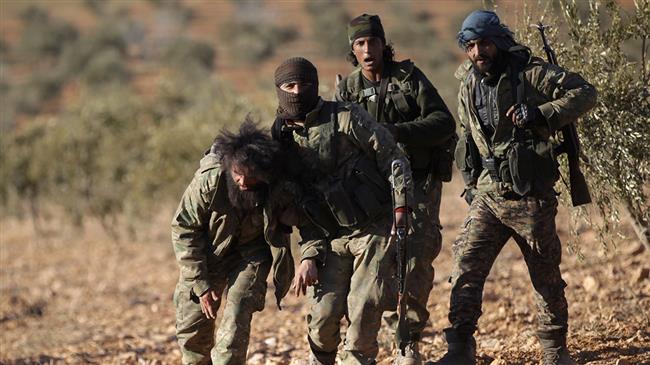
RNA - The British citizens were members of a Daesh kidnapping cell dubbed "The Beatles" which was notorious for videotaping beheadings, The New York Times reported Thursday. They were involved in the killing of detained Western hostages.
The men, who were identified as Alexanda Kotey and El Shafee Elsheikh, were captured in January in eastern Syria by the so-called Syrian Democratic Forces (SDF), which are supported by the US.
"The two are believed to have acted as guards and interpreters involved in ISIS' illegal captivity of Western hostages, and are thought to have links to the British terrorist often called 'Jihadi John'," the official said in a statement, using an acronym for the terrorist group.
The two captured men were the last two remaining "Beatles" members who were still at large. Mohammed Emwazi, known as "Jihadi John," was killed in 2015 in a drone strike by the US-led coalition claimed to be fighting against Daesh. Another "Beatles" member, Aine Davis, is being imprisoned in Turkey.
The US State Department described Kotey, 34, and Elsheikh, 29, as executioners and jailers for Daesh.
Kotey “likely engaged in the group’s executions and exceptionally cruel torture methods, including electronic shock and waterboarding. Kotey has also acted as an ISIL recruiter and is responsible for recruiting several UK nationals to join the terrorist organization," the State Department said in a statement.
“Elsheikh was said to have earned a reputation for waterboarding, mock executions and crucifixions while serving as an ISIS jailer,” the statement continued.
Emwazi was the group's leader, who became notorious for using a knife to kill hostages in a series of beheadings that were videotaped and posted on the internet.
He was wanted for the gruesome killings of US journalists James Foley and Steven Sotloff, Japanese journalist Kenji Goto, and British aid workers David Haines and Alan Henning.
Last month, the UK reportedly stripped more than 150 criminals and suspected terrorists of their citizenship, out of fear that they would return to Britain after the fall of Daesh in Iraq and Syria.
British ministers have increased “deprivation orders,” The Sunday Times said on January 30, noting that more than 40 suspects had their right to a passport removed since the beginning of this year.
Some 30 of those orders had been issued since March, roughly the same time that the terror group’s streak of major defeats in Iraq and Syria began, the report added.
Among the ones banned from returning to the UK were militants and the British women who had traveled to Syria as “brides,” security sources told the Times.
847/940